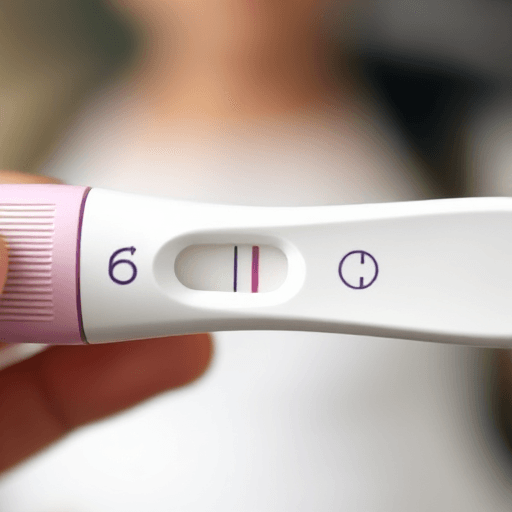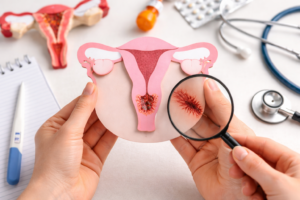In vitro fertilization (IVF) offers a ray of hope to countless couples facing the challenges of infertility. However, receiving a negative pregnancy test result after an embryo transfer can be disheartening. It’s essential to understand the reasons behind this outcome, what it means, and how to move forward with clarity and confidence.
Common Negative Signs After Embryo Transfer
After an embryo transfer, it’s natural to analyze every symptom or lack thereof. While many symptoms can vary, some negative signs after embryo transfer might include:
- Absence of common early pregnancy symptoms like nausea or breast tenderness.
- Persistent cramping without spotting or implantation bleeding.
- Feeling emotionally or physically unchanged after the procedure.
However, it’s important to remember that every body reacts differently, and these signs are not definitive indicators of a failed transfer.
Pregnancy Test Negative but No Period
One of the most confusing situations is getting a pregnancy test negative but no period after the expected date. This could happen for several reasons:
- Medication Influence: Hormonal treatments during IVF can delay or mask menstrual cycles.
- Testing Too Early: Testing before the recommended time can lead to inaccurate results.
- Chemical Pregnancy: A very early miscarriage can occur before a period resumes.
If your period hasn’t started, consult your fertility specialist for guidance on the next steps.
Why My Pregnancy Test Is Negative
A question many ask is, “Why my pregnancy test is negative despite following all protocols?” There are several possible explanations:
- Timing Issues: Testing too soon after an embryo transfer may not allow enough time for the hormone hCG to build up to detectable levels.
- Failed Implantation: Sometimes, embryos do not successfully implant into the uterine lining despite optimal conditions.
- Faulty Test Kit: Occasionally, a pregnancy test kit fails, leading to incorrect results.
When to Take Pregnancy Test After Embryo Transfer
Knowing when to take pregnancy test after embryo transfer is crucial to avoid premature results. Experts typically suggest waiting around 10 to 14 days after the transfer. This window allows the body sufficient time to produce detectable levels of hCG if implantation has occurred. Always follow your doctor’s specific advice for timing to ensure the most accurate result.
Does Pregnancy Test Kit Fail?
Although rare, the answer to “Does pregnancy test kit fail?” is yes. Reasons for a false-negative result may include:
- Expired or damaged test kits.
- Improper usage or misinterpretation of results.
- Testing too early before hCG levels are sufficient.
If you suspect an error, repeat the test using a new kit or request a blood test for confirmation.
What Are the Symptoms of a Negative Embryo Transfer?
A failed embryo transfer often shows no clear symptoms, making it hard to distinguish from a successful attempt. However, some symptoms of a negative embryo transfer may include:
- Absence of implantation bleeding or cramping.
- No increase in basal body temperature.
- Lack of hormonal changes, such as mood swings or fatigue.
Remember, only a pregnancy test can confirm the outcome, so avoid making assumptions based solely on symptoms.
How Can You Tell if an Embryo Transfer Isn’t Successful?
How can you tell if your embryo transfer isn’t working? is complex and often accompanied by anxiety. Some indicators might include:
- Spotting or bleeding that resembles a period shortly after the transfer.
- Persistent abdominal discomfort without positive test results.
- No detectable rise in hCG levels during follow-up tests.
Your healthcare provider will perform thorough evaluations, including ultrasounds and blood tests, to determine the outcome accurately.
Moving Forward After a Negative Result
A negative pregnancy test result can be heartbreaking, but it’s not the end of your journey. Here’s how to proceed:
- Consult Your Specialist: Discuss the potential reasons for the failure and explore adjustments to your treatment plan.
- Emotional Support: Seek counseling or join support groups to process your emotions.
- Focus on the Future: Understand that each IVF cycle offers new opportunities and advancements in fertility treatments can improve your chances.
Conclusion
Receiving a negative pregnancy test result after IVF is a challenging experience. By understanding negative signs after embryo transfer, the reasons behind a pregnancy test negative but no period, and addressing concerns like “Why my pregnancy test is negative,” you can approach your next steps with hope and informed decisions. Ova Fertility and Women Care is here to support you at every stage of your journey, offering compassionate care and personalized solutions.









 No need to worry, your data is 100% Safe with us!
No need to worry, your data is 100% Safe with us!